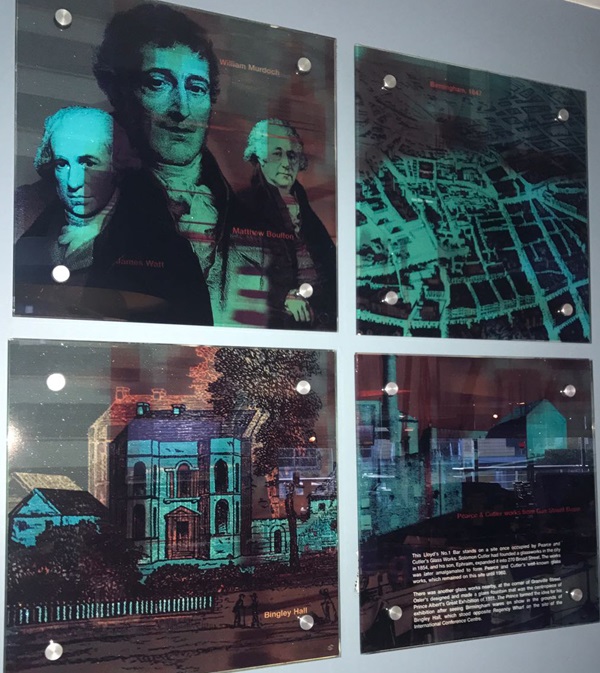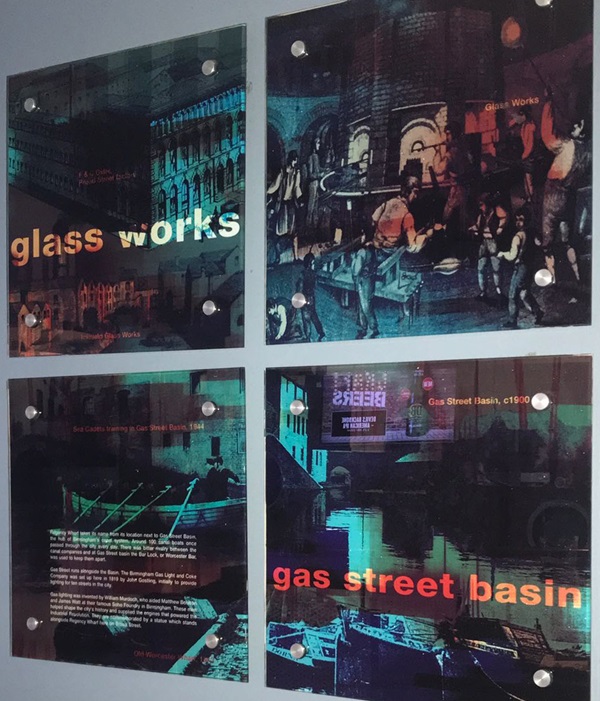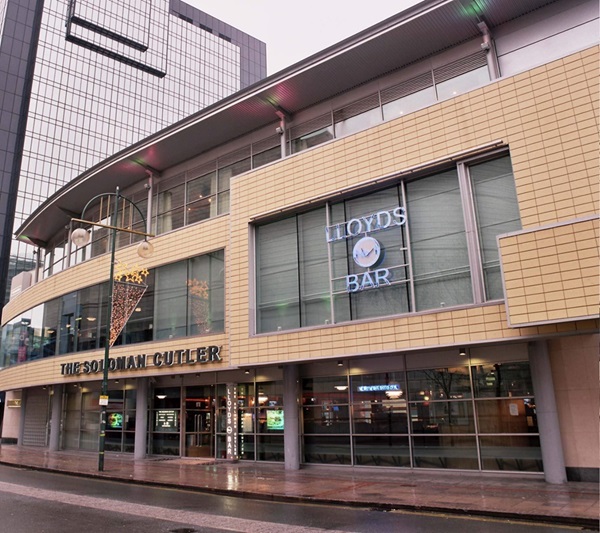Regency Wharf stands mainly on the site of Pearce & Cutler’s Glass Works. Cutler’s was founded by Soloman Cutler, in 1854. His son, Ephraim, expanded on to this Broad Street site and later amalgamated with his neighbour’s land.
Prints and text about Pearce and Cutler’s Glass Works.

The text reads: This Lloyd’s No.1Bar stands on a site once occupied by Pearce and Cutler’s Glass Works. Soloman Cutler had founded a glassworks in the city in 1854, and his son, Ephraim, expanded it into 270 Broad Street. The works was later amalgamated to form Pearce and Cutler’s well-known glass works, which remained on this site until 1960.
There was another glass works nearby, at the corner of Granville Street. Osler’s designed and made a glass fountain that was the centrepiece of Prince Albert’s Great Exhibition of 1851. The Prince formed the idea for his exhibition after seeing Birmingham wares on show in the grounds of Bingley Hall, which stood opposite Regency Wharf on the site of the International Conference Centre.
Prints and text about Regency Wharf.

The text reads: Regency Wharf takes its name from its location next to Gas Street Basin, the hub of Birmingham’s canal system. Around 100 canal boats once passed through the city every day. There was bitter rivalry between the canal companies and at Gas Street basin the Bar Lock, or Worcester Bar, was used to keep them apart.
Gas Street runs alongside the Basin. The Birmingham Gas Light and Coke Company was set up here in 1819 by John Gostling, initially to provide lighting for then streets in the city.
Gas lighting was invented by William Murdoch, who aided Matthew Boulton and James Watt at their famous Soho Foundry in Birmingham. These men helped shaped the city’s history and supplied the engines that powered the Industrial Revolution. They are commemorated by a statue which stands alongside Regency Wharf here on Broad Street.
External photograph of the building – main entrance.

If you have information on the history of this pub, then we’d like you to share it with us. Please e-mail all information to: pubhistories@jdwetherspoon.co.uk